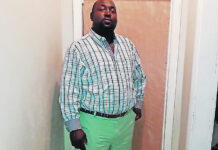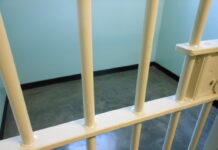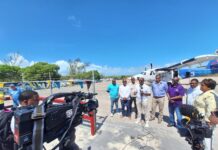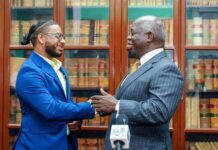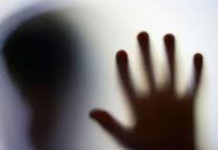Minnis OPENING UP AND LOCKING DOWN – And REFUSES TO HAVE FREE TESTS FOR COVID ACROSS THE COUNTRY!!!!
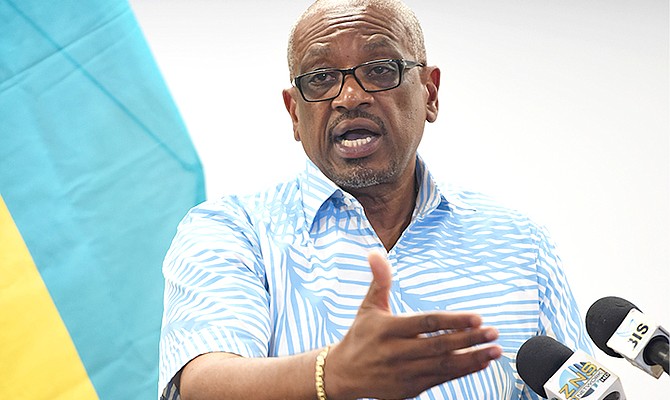
NASSAU, Bahamas – The Bahamas is moving into another stage of the reopening of its economy amid warnings that nationals and visitors alike could be fined as much as US$1,000 for failing to wear a mask in public, and an appeal to nationals to remain in the country for fear of bringing about a new wave of the coronavirus (COVID-19) on their return.
Prime Minister Dr. Hubert Minnis in a radio and television broadcast, defended the decision to reopen the local economy from Wednesday, saying 50 per cent of the country’s gross domestic product (GDP) is derived from tourism, which employs directly and indirectly up to 60 per cent of the working population. He said the first phase of the re-opening of international tourism began on June 15 with the re-opening of the international borders to private aviation, yachts and pleasure craft.
“On Wednesday the first of July 2020, we will enter into Phase 2 of the Tourism Plan when our international borders will re-open for international commercial flights,” he said, adding that also on Wednesday, hotels and vacation rentals which may have been closed, may reopen.
“Masks are to be worn by all persons, Bahamians, residents and visitors, entering and exiting our beaches. Please be reminded, gatherings on the beaches of more than five persons are strictly prohibited. This will result in a fine under the Emergency Orders.”
Minnis said that the Ministry of Health and the Ministry of Tourism will collaborate with and assist the Royal Bahamas Police Force reiterating that persons not wearing face masks could be fined US$200 or one month imprisonment, or both.
“Additionally, we have already made it an offence for a business establishment to allow patrons to enter or remain in that establishment without a mask. The fine for this offence on the first occurrence will be US$500 and on the second occurrence the fine will be US$1,000. On the third occurrence of this offence, the business establishment may be temporarily closed or required to pay a greater level of fines,” Minnis said.
Prime Minister Minnis said that various requirements have been put in place for people entering the country.
“It remains the case that persons will be required to undergo an RTPCR COVID 19 molecular diagnostic test administered by an accredited lab prior to returning The Bahamas. Effective 7th July, the results of the RTPCR COVID 19 test must have been taken no later than seven days prior to the date of arrival. Until that date, tests that have been taken no later than 10 days prior to travel will continue to be accepted.
“We have made the window of time for testing shorter for the protection of Bahamians and residents. Bahamians and residents returning to The Bahamas from countries where they cannot obtain the COVID 19 RTPCR test, may be permitted entry. We want our people to be able to return home. However, they must clearly demonstrate that the test was unavailable.
“They will also be subject to mandatory quarantine for fourteen days upon arrival in The Bahamas. x Bahamians and residents who have departed from The Bahamas and are returning after a period of seventy-two hours or less are not required to undergo a RTPCR COVID 19 test,” Minnis said.
The Prime Minister told the nation his administration had decided on reopening the economy after careful deliberations.
“We are guided by our very talented health experts in The Bahamas. Our dynamic team of Bahamian professionals are in turn guided by international experts and best practices from around the world, including lessons learned from previous pandemics. Like other jurisdictions that acted early, our task is to reopen with as minimal risk as possible, though risk cannot be eliminated because this epidemic is still raging around the world
“We are reopening because we must carefully balance the health, economic and social needs of our people in order to secure our country in the medium- and long-term. We have to reopen to get more Bahamians back to work and to get businesses and the economy back to work. Like a number of other countries, we are reopening because we have been successful in arresting the community spread of COVID-19 in The Bahamas. We have had a total of 104 confirmed cases to date,” he said, adding that the country has not recorded a case for many days.
But Minnis said that as the economy is being reopened he was appealing to the minority who would seek not to follow the health guidelines resulting in a new wave of the virus.
“As we continue the opening up our economy and the social life of the nation, I appeal to the faithful majority to hold steady. But you know too well that there are always some who, for one misguided reason or another, will refuse to cooperate, or try to frustrate our best efforts.
“I appeal to those who have been less cooperative to join the rest of the nation as we navigate the dangerous shoals ahead. I appeal to them on the basis of our traditional Bahamian civility, that civility for which we as a people are widely known.
“Civility is simply our expression of respect and concern for others. As we seek to open up our economy and restore our society, let us remember that it is about preserving the health of our people, it is about saving precious lives. It is also a good thing for our future economic prospects because, if we can maintain our reputation of having handled the pandemic well, then that in itself will attract visitors to the Bahamas.”
Minnis said he also wanted to make “a very strong plea to Bahamians and residents considering or planning to travel overseas for nonessential travel — to not go overseas at this time.
“If you are thinking of travelling for non-essential or nonemergency reasons, please, I beg you, stay at home at this time.
“Please stay at home! A number of the cities and areas Bahamians and residents like to frequent in neighbouring countries and cities are experiencing a dramatic rise in COVID-19 cases. Many of these are hotspots where this very contagious virus is widespread. If you travel to these areas and go to malls, shops, restaurants and other establishments you might catch the virus. You could bring the virus home and community spread could start again,” Minnis warned.


